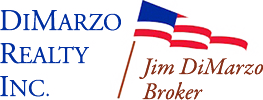Vero Beach real estate news trends seem to indicate an increasing number of Americans in search of the proverbial American Dream of home ownership may not be able to experience it. In a nutshell, they either can’t afford the prices of new homes or are unable to save money for a down payment.
Recent statistical models show prospective home buyers at various household income levels are likely to experience sticker shock when shopping for a home this spring. Finding a home in their affordable price range is expected to be a challenging task for many.

Home prices throughout much of the nation have risen by as much as 40% during the past five years. Conversely, incomes have increased roughly half that pace, therefore, creating a chasm between price and affordability. First-time buyers and those in the lower-tiered household income range will face significant competition for the listings they may be able to afford. In addition, higher interest rates may also dampen their ability to afford many homes on the market. If interest rates continue to rise, potential home buyers and borrowers on the qualification borderline may be unable to qualify for mortgage financing.
An even more disheartening twist in the Vero Beach real estate news trends is the feeling among some housing experts that lack of available credit is a bigger problem than what interest rates do or don’t do. In the words of one housing economist, there appears to be two completely separate housing markets today: One for higher-income purchasers that seems to be brisk and successful, and one for affordable housing units that’s stagnant and struggling.
Lack of growth in the category of starter homes is cited as one reason first-time home buyers, such as millennials, have been slower then previous generations to buy their first home. Incomes just haven’t kept pace with home price increases, making it difficult for middle-class income borrowers from attaining home ownership.
As has been mentioned numerous times in Vero Beach real estate news trends, the inventory of available – and affordable – homes is in short supply. Due to this tight supply, those homes that are on the market are likely priced higher than they ordinarily would be, creating a seller’s market – what typically occurs when the supply doesn't equal demand. In this case, even the lesser priced homes may be out of reach for many prospective purchasers.
The Down Payment Dilemma
To make matters worse for some, saving money for a sufficient down payment is also a challenge that’s a direct result of two factors: 1) Not earning enough money to be able to save and, 2) As home prices continue to rise, so do rents for the first-time homeowners waiting for the right time to buy.
A 20% down payment on the median-priced home of $192,500 in the U.S. currently is roughly $38,500 based on a recent Zillow report. Compounding the problem, in parts of the country where incomes are higher and prospective homeowners are able to save money, the real estate prices in those areas are more expensive, too – making it the typical "catch 22" scenario when it comes to affording a home.
Despite mortgage loan programs requiring considerably less than the widely-accepted 20% down payment – some as little as 3.5% – first-time borrowers are finding those loans are available at higher interest rates and they require the addition of private mortgage insurance (PMI.) PMI insurance is a type of mortgage protection insurance insuring the lending institution against the borrower defaulting on the mortgage payments. The premiums on PMI can be rather steep – especially on top of an already-high loan amount and resulting monthly mortgage payment.
To combat against the higher cost of financing more and putting less of a down payment, many first-time home buyers are tapping into other assets to make the American Dream a reality. Vero Beach real estate news trends are seeing some prospective first-timers withdrawing money from their 401(k) accounts, while others are relying on loans or gifts from parents to provide the necessary 20% to avoid PMI – and the monthly escrow of taxes and insurance payments required for loans with higher loan-to-value (LTV) ratios such as these. Typically, lending institutions who finance more than 80% of the appraised value of a home will require the borrowers to pay the monthly pro-rated portion of the real estate property taxes and the homeowners insurance premium into an escrow account. When the taxes and insurance premiums are due and payable, the lending institution then pays those amounts out of the borrower’s escrow funds and the process starts all over again for the next year.
While the short-term solution may be to increase the number of affordable homes on the market, unfortunately that process takes a while. New home construction, while brisk in some markets, still lags behind demand. In addition, home builders are commanding top dollar for new homes, forcing purchasers to sell their existing ones for as much equity as possible.
It’s a cycle worth continuing to follow as part of the Vero Beach real estate news trends – not only here in Vero Beach , but throughout the nation in coming months.
See more articles pertaining to the most current Vero Beach real estate news trends in the section of articles on Vero Beach Real Estate News just below Vero Beach Real Estate Categories in the column to your right. And remember, we also post tips daily on Facebook and Twitter. Check us out there as well.

